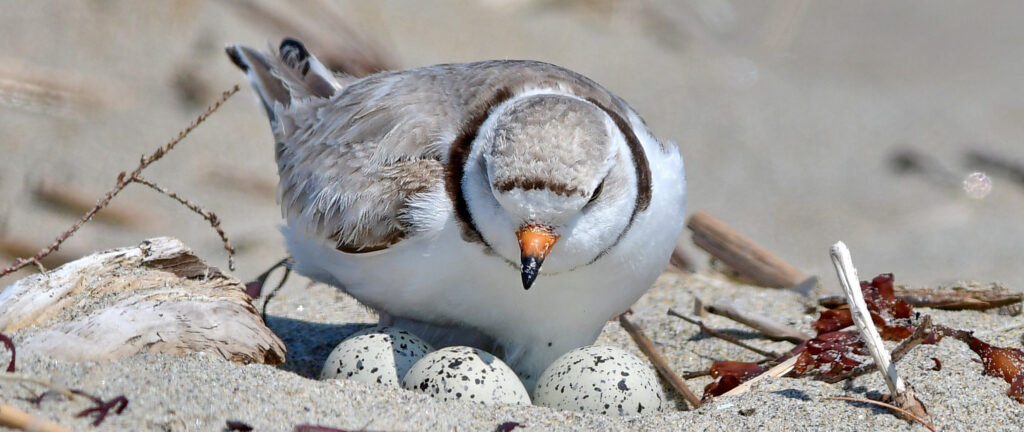
The Endangered Species Act is turning 50 this year! Enacted in 1973, this law is one of our most important tools to conserve our nation’s most vulnerable species – which, right now, includes 740 animals and 940 plants. Fifty years of experience has proven that the Endangered Species Act works: the Act has prevented the extinction of 99% of the species it protects. Yet despite its track record of protecting the futures of imperiled plants and animals, the Endangered Species Act’s own future is in doubt.
The Trump Administration worked tirelessly to weaken the Endangered Species Act, and attacks continue from Congress. Right now, we have an important opportunity to both reverse the damage done, address current threats to this landmark law, and potentially make the Act even stronger.
Proposed Changes to the Endangered Species Act
The U.S. Fish and Wildlife Service (USFWS) and the National Marine Fisheries Service (NMFS) recently proposed several revisions to the Endangered Species Act. We spent weeks reviewing their suggestions thoroughly and while many are good, we urged these federal agencies to be even bolder. The federal rulemaking process is a wonky world of small print and legal jargon. But don’t fear! We’re here to break it down for you.
Here’s what we’re excited about…
- Removing language added in 2019 that made federal agencies consider the “economic impacts” of listing. Reviewing the economic impacts of a species’ listings is wholly counter to the Act’s mandate and, above all else, the listing process and classification determinations should be rooted in science.
- Revising confusing language that mandated a determination of the likelihood of future threats and a species’ responses to those threats. Ridding the ESA of this language will help protect species threatened by climate change, ensuring that an administration cannot claim alleged scientific uncertainty to deny protections for climate-impacted species … which really includes all of them!
- Reinstating language that threatened species should be afforded the same protections as endangered species, widely known as the “blanket rule.” This rule helps mitigate extinction risk for threatened species, such as Maine’s famous Piping Plovers.
- Extending the conservation powers that state and federal agencies have to manage endangered and threatened species to federally-recognized Tribes. This change is not only logical and beneficial to the overall conservation of imperiled species, but they serve as a necessary recognition of Tribes’ inherent sovereign powers as independent nations.
Here’s where we need to be bolder…
- Reinstating protections to critical habitat for listed species from development – making sure that we don’t treat even some of these essential geographic areas as expendable.
- Promoting language to help ensure that science-based, responsive, and dynamic habitat conservation measures are considered for at-risk species who have extensive ranges, such as the federally threatened Canada Lynx.
- Reversing 2019 changes to the ESA that facilitated premature delisting – making sure that species’ recovery meets all science-based standards before removing the backstop of ESA protections.
- Narrowing the layers required for reviewing critical habitat as recent changes to the Act ignore the existence of simultaneous ongoing threats to species outside of habitat loss and fragmentation. For example, populations of federally endangered Northern Long-Eared Bat have been ravaged by white-nose syndrome while enduring ongoing threats of habitat loss.
For those that are interested in getting even further into the policy weeds with us, you can find our official comments submitted here, here, and here. Hundreds of Maine Audubon members and supporters signed a petition we circulated recently to urge our federal agencies to restore the full power of the Endangered Species Act – if you signed, thank you! We delivered your signatures along with our comments. If you want to make sure you don’t miss out on opportunities to support at-risk species and beyond, sign-up for our action alerts here!
Continued Threats to the Endangered Species Act
Attacks on the Endangered Species Act have shown up in other less obvious places recently, too. Over the past few months, federal lawmakers have tried to strip protections to individual species in 11th-hour legislative moves. For example, in July the U.S. House of Representatives voted to overturn two Biden Administration additions to the ESA: the Lesser Prairie-Chicken and Northern Long-Eared Bat – two species that desperately require ESA-level protections in order to keep them from going extinct.
Anti-wildlife laws like this one are a dime a dozen these days. As our world faces both the climate and biodiversity crises, reckless laws which further doom vulnerable species like the Northern Long-Eared Bat cannot stand.
UPDATE – 9/26/23 — President Biden officially vetoed the two bills, putting an end to the efforts to remove Endangered Species Act protections for both the Northern Long-eared Bat and the Lesser Prairie-Chicken.
You Can Count on Maine Audubon
Next month, Maine Audubon staff will travel to Washington, DC to celebrate the 50th anniversary of the Endangered Species Act – gathering with our partners in wildlife conservation across the country and meeting with members of our federal delegation. Our message to our delegation will be clear: We have a collective responsibility to adequately protect our nation’s imperiled wildlife, fish, and plants and weakening the most important tool we have to restore biodiversity within our borders – the Endangered Species Act – is unacceptable. As species’ populations begin to drop or as once-common animal species become less common, it’s imperative that our federal agencies restore the full power of the Act and that our federal lawmakers recognize that protecting vulnerable wildlife, fish, and plants is important.
Holding those in power accountable to our nation’s imperiled species seems like an appropriate 50th birthday gift to us! Stay tuned for more ways to make sure your voice is heard as we continue our work here and beyond. Onward!
